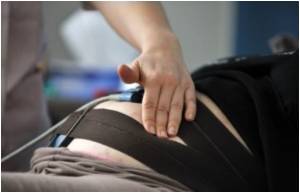
"Mothers of children with autism were significantly less likely than those of typically developing children to report having taken prenatal vitamins during the three months before and the first month of pregnancy," said lead researcher Rebecca J. Schmidt, assistant professor in the Department of Public Health Sciences in the UC Davis School of Medicine.
The finding was strong and robust, and is the first to suggest a concrete step women can take that may reduce the risk of having a child with autism.
The researchers postulate that folic acid, the synthetic form of folate or vitamin B9, and the other B vitamins in prenatal supplements, likely protect against deficits in early fetal brain development.
Folate is known to be critical to neurodevelopment and studies have found that supplemental folic acid has the potential to prevent up to 70 percent of neural tube defects, said the authors.
"This finding appears to be the first example of gene-environment interaction in autism," said senior author Irva Hertz-Picciotto.
Advertisement
The finding, if replicated, provides a potential means of reducing the risk of having a child with autism, said the researchers.
Advertisement
The study is published online in the journal Epidemiology and will appear in print in July.
Source-ANI














